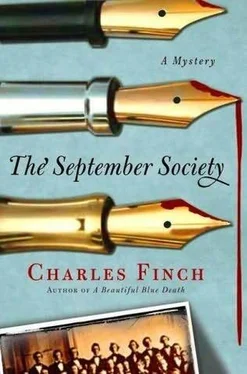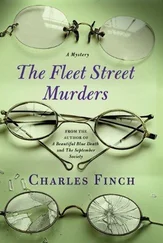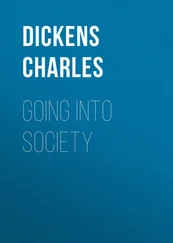Charles Finch - The September Society
Здесь есть возможность читать онлайн «Charles Finch - The September Society» весь текст электронной книги совершенно бесплатно (целиком полную версию без сокращений). В некоторых случаях можно слушать аудио, скачать через торрент в формате fb2 и присутствует краткое содержание. Жанр: Исторический детектив, на английском языке. Описание произведения, (предисловие) а так же отзывы посетителей доступны на портале библиотеки ЛибКат.
- Название:The September Society
- Автор:
- Жанр:
- Год:неизвестен
- ISBN:нет данных
- Рейтинг книги:4 / 5. Голосов: 1
-
Избранное:Добавить в избранное
- Отзывы:
-
Ваша оценка:
- 80
- 1
- 2
- 3
- 4
- 5
The September Society: краткое содержание, описание и аннотация
Предлагаем к чтению аннотацию, описание, краткое содержание или предисловие (зависит от того, что написал сам автор книги «The September Society»). Если вы не нашли необходимую информацию о книге — напишите в комментариях, мы постараемся отыскать её.
The September Society — читать онлайн бесплатно полную книгу (весь текст) целиком
Ниже представлен текст книги, разбитый по страницам. Система сохранения места последней прочитанной страницы, позволяет с удобством читать онлайн бесплатно книгу «The September Society», без необходимости каждый раз заново искать на чём Вы остановились. Поставьте закладку, и сможете в любой момент перейти на страницу, на которой закончили чтение.
Интервал:
Закладка:
“Is there anybody else to connect them?”
“I don’t think so. Oh-I suppose there’s Andy Scratch. He’s a decent fellow, though rather of a different crowd. A year older than us. The three of them serve on the social committee together. You can usually find him playing cards with the bartender down at the Mitre on Turl Street in the evening. Sandy-haired chap.”
“Scratch or the bartender?”
“Scratch.”
They had arrived at the rooms.
“Why did you live with Dabney?” asked Lenox. “If you were closer with Payson?”
“Oh-I suppose I put that too strongly. We’re all about equally friendly. All three of us requested a triple room, but only Dabney and I were put together. Between you and me, I reckon it was George’s mother who intervened, because he got practically the best digs in college.”
“Oh yes?”
“I’d trade. Although it’s a bit lonely for him. He spends a good deal of time over here, or at the Mitre. More sociable. Payson’s a sociable lad. The sort who would have been friends with the cricket captain at school even though he didn’t play cricket himself. Popular, I mean to say.”
Lenox smiled. It was a good description.
The room offered relatively little useful evidence. There was the usual assortment of books and tennis rackets and shoes lying about, and a fair amount of paper covered with Latin translations and other incidental coursework. On the back of one of these pages, the name George Payson was written several times in script.
“Any clue why this is here?”
Stamp shrugged. “Probably George was bored and practiced his signature. I sometimes doodle during lectures. Same thing.”
“Yes,” said Lenox.
There was also a fair collection of matchboxes. “A smoker?” Lenox asked.
“No. Perhaps he collected them.”
“Yes, they’re all from clubs and bars.”
“I remember now-he got quite touchy if I nicked one.”
“Odd.”
“Well, Dabs can be moody, as I told you.”
A few other things-none of them really interesting. Odds and ends. Lenox couldn’t make much out about the lad from the detritus of his life.
“Where did you find the card-the September Society card?” he asked.
“Lying on top of all his books,” Stamp said. He was in the process of taking another match from one of Dabney’s matchbooks to light a cigarette. “Only about an hour before you came. I misplaced a biography of Cromwell. Hope it stays misplaced, actually. That’s why I was digging through here.”
Lenox finished looking at the room, making a thorough job of it. Outside it was dark.
“Thank you for your help.”
“Don’t mention it. You will find them, won’t you?”
“Where are you from?”
Stamp pushed his hair away. “Why, London. Do you ask for a reason?”
“If I were you I might consider returning home this weekend.”
“Why?”
“Both of your best friends are missing. I only suggest caution, not anxiety. But caution, certainly. This is a deep business.”
Stamp looked surprised. “Rum, that. Perhaps I will,” he said. “Rum,” he repeated to himself.
He showed Lenox downstairs and out into the courtyard. At his last glimpse Lenox saw anxiety dawning on the young man’s face, despite the counsel against it that he had just received.
CHAPTER TEN
A re you going to consult the police?” McConnell asked, lifting his glass of beer.
“I shouldn’t think so. Not yet, anyhow. It’s been a day and a half and there’s no conclusive evidence of foul play. For all we know they may be on a trip into London. Though I doubt it.”
It was about seven in the evening, and the violet twilight had given way to darkness outside. For a passing moment, Lenox gave in to a deep wave of exhaustion. It had been a long, long day already.
“Sure,” said McConnell. “Kill your cat, go on a binge in Park Lane. Common enough.”
The doctor was wearing a gray wool suit of the sort that every don at Oxford seems to live in. There was a plaid handkerchief in his pocket, an allusion to his Scottish lineage. He was still a handsome man, fit and red-cheeked, accustomed to the outdoors, though the weariness of his eyes made him look older than he was.
At the moment he was smiling, however. “A dead cat, Lenox. Really. No wonder I became a doctor.”
“Your whole career has been building toward this moment, has it?”
“No doubt of it.”
They were at the Bear, the oldest public house in Oxford. McConnell had wanted to go somewhere nicer, but Lenox put his foot down. He so rarely came back to Oxford that when he did he liked to revisit the spots of his student life. The Bear, its three tiny, dim rooms, arched over with old wooden beams, its rickety tables and delicious food, was one of the happiest places in the world to him. As it had been for students like him since the thirteenth century, 1242, if he recalled correctly.
Lenox was having a chop in gravy and garlic potatoes, as he had every Thursday night of his third year when his friends gathered from the libraries to commiserate over the gloom of year-end examinations. McConnell was pushing around a bowl of cottage pie, but sticking mostly to beer.
“Where do you think you’ll travel next, Charles?” he asked between sips.
“Hard to say. I have my eye on Morocco, though.”
There was a twinkle in McConnell’s eye. “Morocco! I never heard of a less civilized place.”
“Oh, the French are down there, and I would love to see Tangier. It’s meant to be beautiful.”
(If Lenox had gone on all the trips he planned, he would have been one of the great travelers of his age; inevitably, a case blocked his carefully laid plans. Still, he loved nothing more in the world than to pore over his maps and travel guides, to meet with his travel agent, to correspond with foreign consulates and plot elaborate routes through territories both known and unknown. Recently it had been Morocco; before that Persia; before that the French coast near Ville-franche. His friends loved to josh him about his grandiosity of vision, rarely fulfilled-though there had once been a remarkable trip to Russia, nearly a decade before-but it was all good-natured, of course.)
“Is it?” said the doctor, his eyes still laughing.
“Yes! One can hire a group of tour guides, mountain men. It’s very occasionally dangerous, but I have a friend from the Travelers’ Club who might go with me.”
They talked about Morocco for a little while longer; then Lenox took advantage of the lightness of their conversation to slide in a dangerous question. “Is everything all right these days, Thomas?” he said nonchalantly.
It went against every instinct in Lenox to put such a question to his friend, but Lady Jane had been worried about Toto (McConnell’s young, beautiful, tempestuous wife was Jane’s cousin) and had asked Lenox to see what he could find out. Her instincts tended to be correct-at any rate, better than his-and it was possible that McConnell’s happy appearance that morning might only have been because of the prospect of a new case, or a momentary renewal of his spirits. Who knew?
“No, no, quite all right,” said McConnell.
“Oh, good,” said Lenox. “Please excuse-I mean to say, it was out of bounds…”
There was a moment’s silence. McConnell’s open, friendly face was downcast now. “To be honest, actually, Toto and I have been rowing a bit. Nothing serious at all, mind you!”
“I’m sorry,” said Lenox. And he was.
“Well, too much of that. Would you like to hear what I’ve found out about the dashed cat?”
“Certainly,” said Lenox.
“The animal was poisoned, as we originally conjectured; not enough poison to kill it, but enough to put it out for a good long time.”
Читать дальшеИнтервал:
Закладка:
Похожие книги на «The September Society»
Представляем Вашему вниманию похожие книги на «The September Society» списком для выбора. Мы отобрали схожую по названию и смыслу литературу в надежде предоставить читателям больше вариантов отыскать новые, интересные, ещё непрочитанные произведения.
Обсуждение, отзывы о книге «The September Society» и просто собственные мнения читателей. Оставьте ваши комментарии, напишите, что Вы думаете о произведении, его смысле или главных героях. Укажите что конкретно понравилось, а что нет, и почему Вы так считаете.












